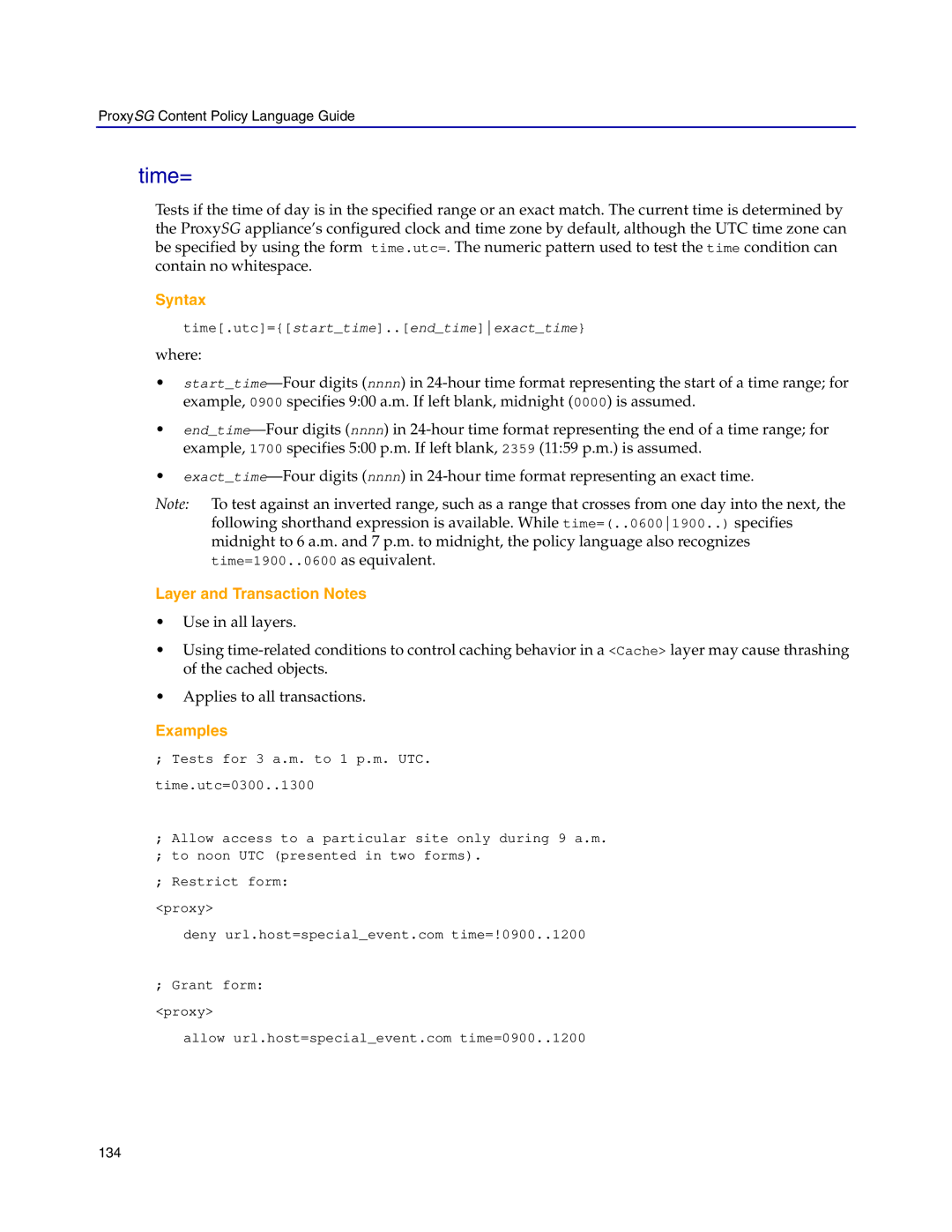ProxySG Content Policy Language Guide
time=
Tests if the time of day is in the specified range or an exact match. The current time is determined by the ProxySG appliance’s configured clock and time zone by default, although the UTC time zone can be specified by using the form time.utc=. The numeric pattern used to test the time condition can contain no whitespace.
Syntax
time[.utc]={[start_time]..[end_time]exact_time}
where:
•
•
•
Note: To test against an inverted range, such as a range that crosses from one day into the next, the following shorthand expression is available. While time=(..06001900..) specifies midnight to 6 a.m. and 7 p.m. to midnight, the policy language also recognizes time=1900..0600 as equivalent.
Layer and Transaction Notes
•Use in all layers.
•Using
•Applies to all transactions.
Examples
;Tests for 3 a.m. to 1 p.m. UTC. time.utc=0300..1300
;Allow access to a particular site only during 9 a.m.
;to noon UTC (presented in two forms).
;Restrict form:
<proxy>
deny url.host=special_event.com time=!0900..1200
;Grant form: <proxy>
allow url.host=special_event.com time=0900..1200
134
